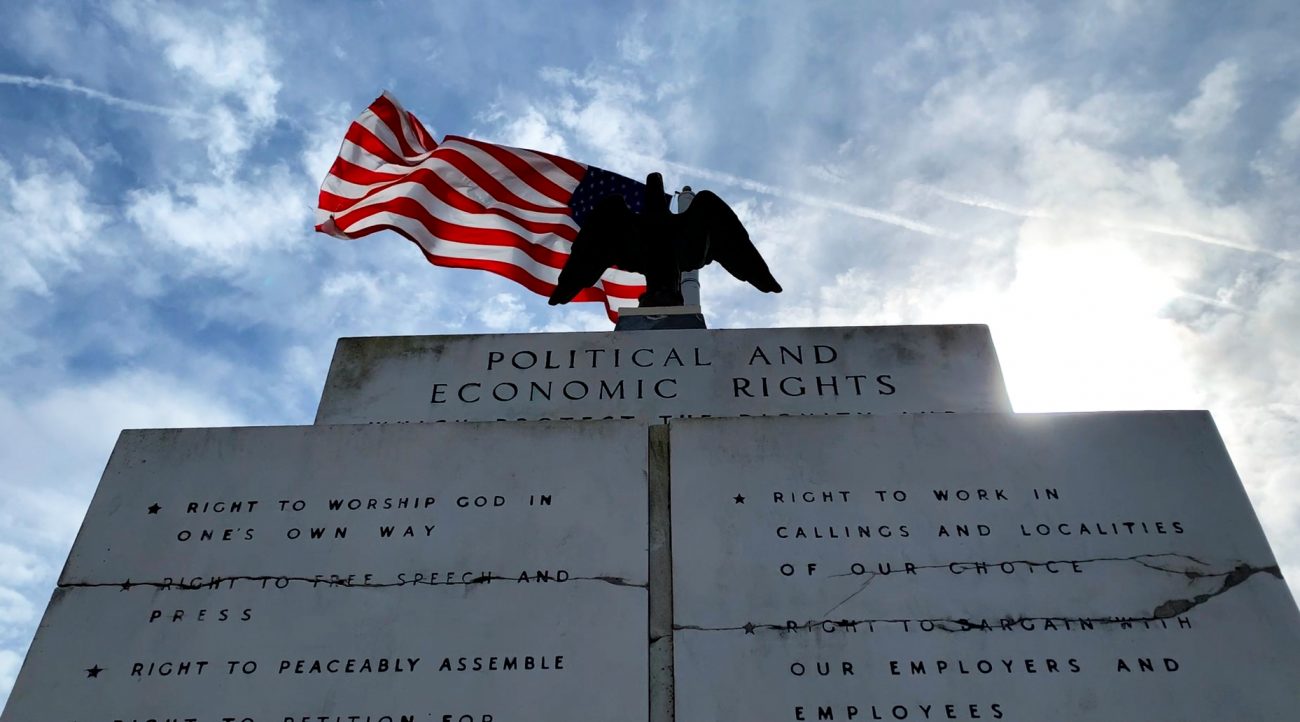Archdiocesan Catholic high school students will be able to deepen their knowledge of the nation’s core principles, thanks to a new collaboration unveiled yesterday.
The Freedoms Foundation at Valley Forge (FFVF) and the Archdiocese of Philadelphia announced Feb. 17 a new scholarship initiative for the FFVF’s Spirit of America Youth Leadership Program (SOA).
Underwritten by the Connelly Foundation, the 900 scholarships (to be distributed over the next three years) will enable students to attend the four-day SOA sessions, which connect teens with experts on citizenship, democracy, the judiciary system, the political process and the workings of free enterprise economics.
[hotblock]
Established in 1949, the nonprofit FFVF educates students on the rights and responsibilities of citizenship, while honoring acts of civic virtue.
The conferences, hosted at FFVF’s expansive campus bordering Valley Forge National Park, offer students an “extraordinary opportunity” to be “not just informed, but transformed,” said David Harmer, the foundation’s CEO.
Through the SOA program, teens are instilled with a profound sense of “civic responsibility” that focuses on “accountability, respect, productivity, political participation and service,” he said.
Lectures, workshops, tours and reenactments enable the teens to understand the key documents of the U.S. – the Declaration of Independence, the Constitution and the Bill of Rights – “not just historically, but (in terms of) what they mean today,” said Jason Raia, FFVF’s executive vice president. “Students are exploring their constitutional rights in a contemporary context.”
In current SOA sessions, participants “are looking at freedom of speech, religious liberty and the right to privacy,” Raia said.
He and his FFVF colleagues also expect “a fair amount of conversation” about COVID mask mandates and vaccines, with an eye toward “balancing our individual liberty with … the common good.”
They’ll even discuss the implications of Alexa, Amazon’s voice-based virtual assistant.
[tower]
“How much of our privacy are we willing to give up to big tech in order to enjoy the fruits of technology in a free market?” said Raia. “Is there a role for government regulation or not?”
Regardless of the issue, said Raia, the goal of SOA is not to “point students in a particular direction on policy,” but to engage them in conversations that ultimately strengthen community and society.
That effort is more critical than ever “in a challenging time of deep political divides,” said Nancy Kurtz, interim superintendent of secondary schools for the Philadelphia Archdiocese.
The SOA seminars impart “fundamental tools” needed to understand civic responsibility, while “sharpening their skills regarding political discourse,” said Kurtz. “This program aligns with our mission of preparing our students for success through servant leadership, and it will serve them well as they mature into leaders for their communities in the future.”
Some three dozen archdiocesan high school students, along with peers from area private Catholic schools, completed the SOA program in November 2021.
Kelly Williamson, a sophomore at Lansdale Catholic, was one.
“I didn’t really know what to expect, because I had never done anything like this before … but I loved it so much,” she said.
In particular, Williamson learned “how to be a good leader,” and quickly applied her experience once back at school.
“I helped start a flag football team, one of the first for girls in the area,” she said. “We worked with the Philadelphia Eagles to do that.”
The seminars also solidified her career choice.
“I know I want to be a teacher, so I got to see other people’s teaching methods,” said Williamson.
In the coming years, Harmer and Raia hope to expand the reach of the SOA program.
“We want to reach more students, so that more of them understand what it means to be a responsible citizen,” said Raia. “Their country needs them.”
PREVIOUS: Schedule set for synod listening sessions in archdiocese
NEXT: Rice Bowl ‘alive and well,’ and helping millions around the world



Share this story